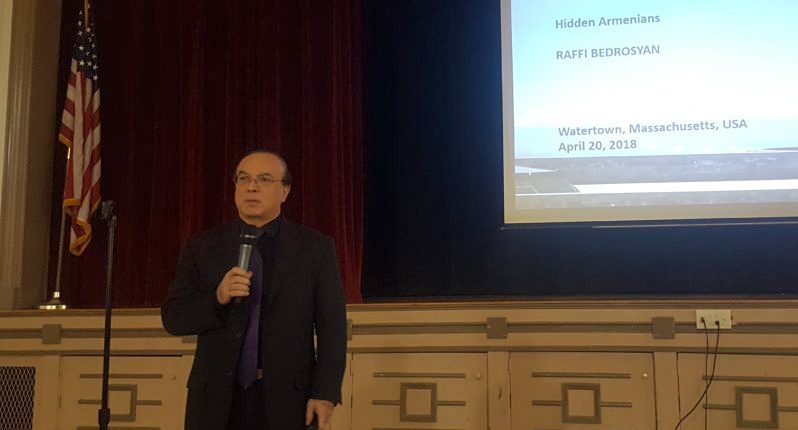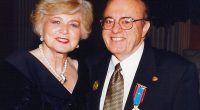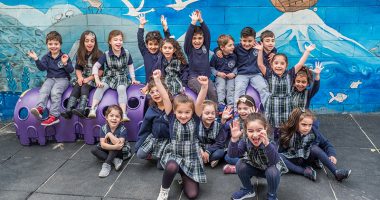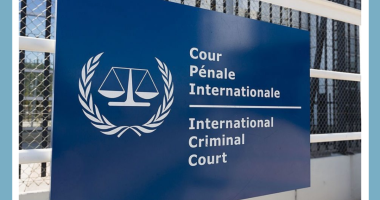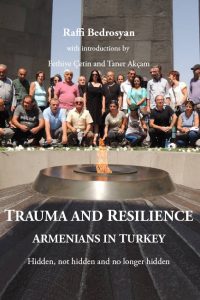

Do Turkey’s Hidden or Islamized Armenians matter to you? They do to Raffi Bedrosyan, an intrepid Canadian-Armenian, who spent over a decade championing the rights of these little known, and much misunderstood, Armenians. His foray was chronicled in several dozen articles which are now included in a full length book, disclosing details of his tumultuous journey. Congratulations Mr. Bedrosyan on your new book, Trauma and Resilience: Armenians in Turkey – Hidden, Not Hidden and No Longer Hidden.
Q. How did you embark on your journey to discover Turkey’s Islamised Armenians?
A. It was Hrant Dink who triggered my interest in the hidden Armenians. He was obsessed with them, kept on saying: ‘We always talk about the dead and the gone after 1915, it is time to start talking about the living and the remaining’. In conversations with him, when I asked: ‘How do you know they are hidden Armenians?’, his response really got to me as he said: ‘I know them from their eyes, and they know that I know’. Then, when I got involved with the reconstruction of the Diyarbakir Sourp Giragos Church, I saw hundreds of hidden Armenians with my own eyes, and I did connect with them. I decided that the existence of large numbers of hidden Armenians is a reality which must be shared with other Armenians in Armenia and the Diaspora.
Q. Did you have any ethical guidelines as when you started probing the issue of Islamised Armenians?
A. In my opinion, if someone has an ethnic origin as Armenian, regardless of religion as Christian, Moslem, agnostic, or atheist, that person is Armenian. People may choose or change their religion, but they have no choice to choose their own ethnic origins, and if they have decided to return to their original roots, language and culture, no one has the right to prevent it, or pass judgment against it. I would, therefore, welcome those Islamised Armenians who wished to return to their Armenian roots and identity, regardless of their religion. We must remember that these people are making a conscious decision to come out as Armenians, despite all the dangers and risks of losing their livelihood, facing discrimination and threats from their friends, neighbours and even their own family members.
Q. You have written around 50 articles on Turkey’s Islamised Armenians. What kind of feedback did you get from your Armenian readers?
A. Many readers are surprised when they find out about this new reality of hidden Armenians. Their feedback is mostly positive, and they are moved reading the incredible survival stories or the desire to return to Armenian roots, but there is also suspicion that the hidden Armenians are not real Armenians, or should not be accepted as real Armenians until and unless they renounce Islam and convert to Christianity.
Q. What has been the reaction of Turks to your work?
A. Apart from the normally negative reaction of the majority of Turks who are conditioned by the denialist version of state history, there were surprisingly large numbers of Turkish readers who were thankful to hear about new facts about Armenians, or hidden Armenians, especially well known Turkish artists, authors, architects or politicians who turned out to be Armenians. I also received many many confidential letters from Turks who opened up to me to reveal their hidden Armenian identities.
Q. How have you changed in the course of your journey? Did you re-examine some of your own thoughts?
A. My first contact with the hidden Armenians was limited to the Diyarbakir area, triggered by the Sourp Giragos Church reconstruction. But soon after the opening of the church, my first concert there and a few articles that I wrote related to these events, hundreds of hidden Armenians started contacting me from various other regions of Turkey. It was such a revelation to realize that the hidden Armenians are spread across east, southeast and northeast Turkey in large numbers, as well as in major cities in the west. I decided it was not enough just to write about the hidden Armenians, but we must plan to help the ones who wish to return to their roots. I started by helping organize Armenian language classes in Diyarbakir, Dersim and Istanbul. Then came the planning of trips to Armenia, in cooperation with the Armenian Ministry of Diaspora. As these activities and my articles describing these activities became well known, more and more hidden Armenians from different regions started ‘coming out’, establishing contacts with me, but more importantly with one another across Turkey. I decided to formalize our activities by naming the initiative ‘Project Rebirth’, which established a vast network of hidden Armenians, providing interaction, communication and support among the hidden Armenians.
Q. You have not been back to Diyarbakir since the fighting in the region in 2015. Do you have any plans to go back soon?
A. Unfortunately, the clashes between the Turkish state and Kurdish militants drastically affected the entire population in the east and southeast Turkey, including the hidden Armenians. Thousands of buildings and entire neighbourhoods were destroyed, several buildings were seized and expropriated by the Turkish state, including the Diyarbakir Sourp Giragos Church and all the properties belonging to the Church Foundation. The beautifully reconstructed church was converted to military headquarters for the state security forces, resulting in much damage and plunder of the church. Thankfully, the Church Foundation officials were able to overturn the expropriation legislation, and we are hopeful that in the very near future, the government will restart the repair of the church at its expense. I am not planning to go back to Turkey until peace and democracy is restored.
Q. What is the status of the city now and its hidden and not-so-hidden Armenians?
A. Diyarbakir is still a city under siege. Certain neighbourhoods are no-entry zones, including the area around Sourp Giragos Church. The hidden and not so hidden Armenians have suffered along with the rest of the local population. Some have lost their homes, others have lost their jobs. It is impossible under these circumstances to think of any Armenian social activities, language classes or trips to Armenia, as people are back into survival mode. Instead of organizing such activities, Project Rebirth now provides a support mechanism arranging for relocations, contacts or legal help.
Q. What do you hope to do next?
A. Although conditions are not favourable at present, my hope is to be able to restart our work with the hidden Armenians, to help those who wish to return to their Armenian roots, language, culture, or in some cases, to Christianity. I know many hidden Armenians also have the same hopes, as they still keep on learning the Armenian language online in their homes, keep in touch with one another across many regions of Turkey, marry one another, give Armenian names to their newborn, and travel overseas to get baptized. I fully expect the Sourp Giragos Church to be repaired in the near future, where the hidden Armenians again will gather for monthly breakfast meetings, concerts, language classes, social events, baptisms and weddings. I also expect to resume our trips for the hidden Armenians from various regions of Turkey to Armenia, bringing back hope for dialogue between Turks and Armenians, based on historic facts towards a peaceful future.
Raffi Bedrosyan, Trauma and Resilience: Armenians in Turkey – Hidden, Not Hidden and No Longer Hidden, with introductions by Fethiye Çetin and Taner Akçam, London: Gomidas Institute, 2019, xx + 226 pages, maps, photos. ISBN 978-1-909382-46-6, paperback, Price: UK£20.00 / US$25.00 / CAN$35.00. For more information, see www.gomidas.org. To order, just send your request with your mailing address to [email protected].

